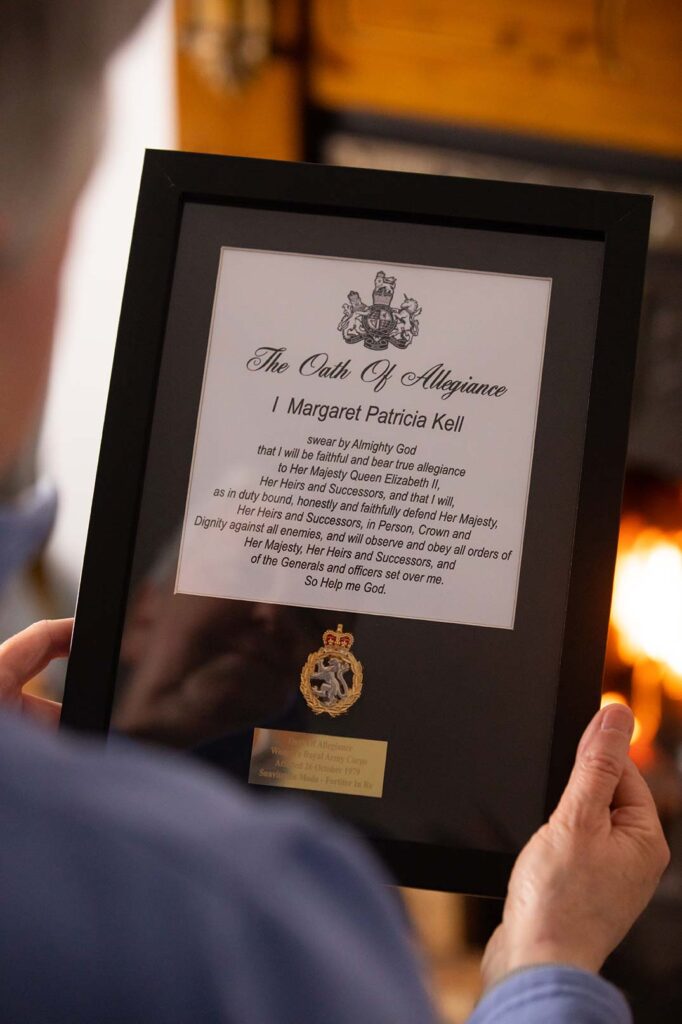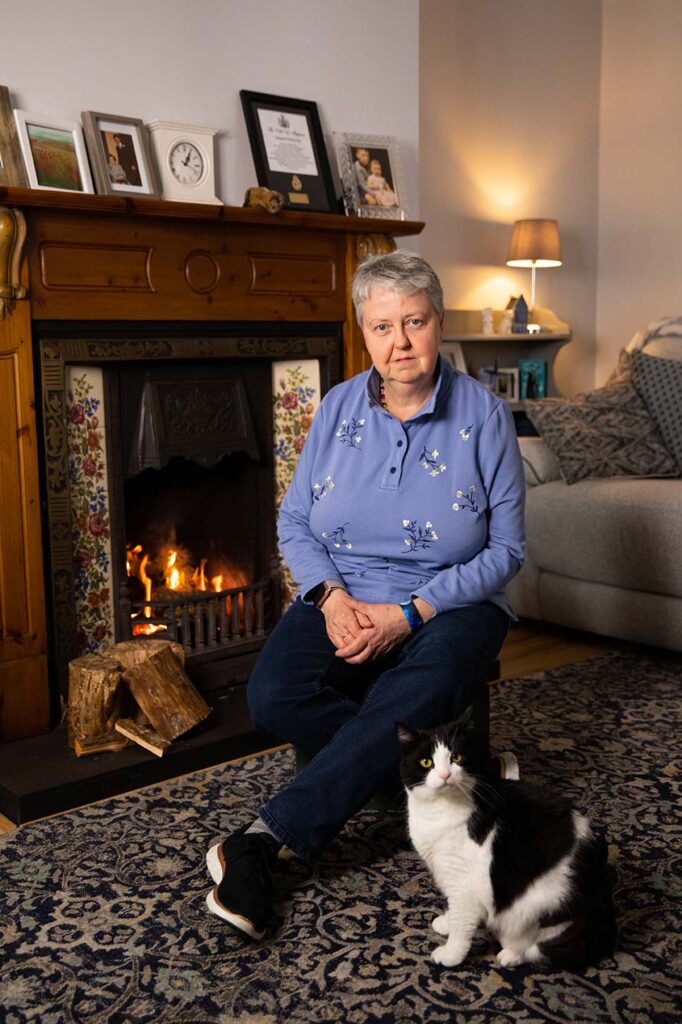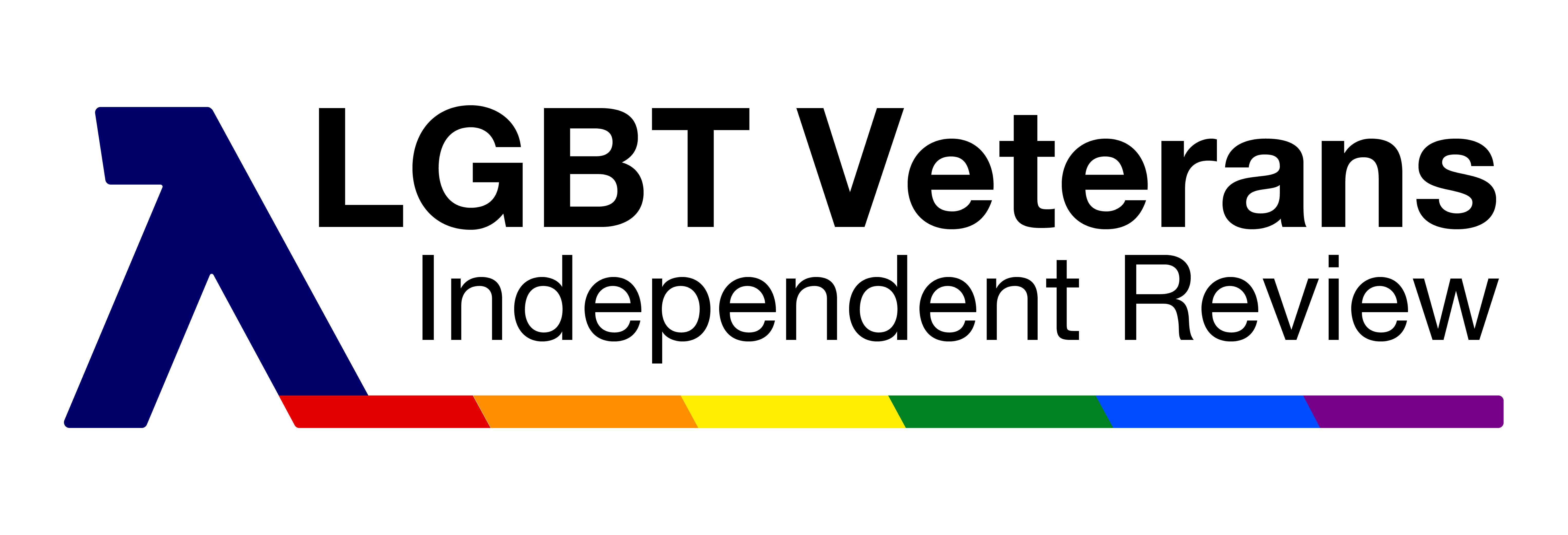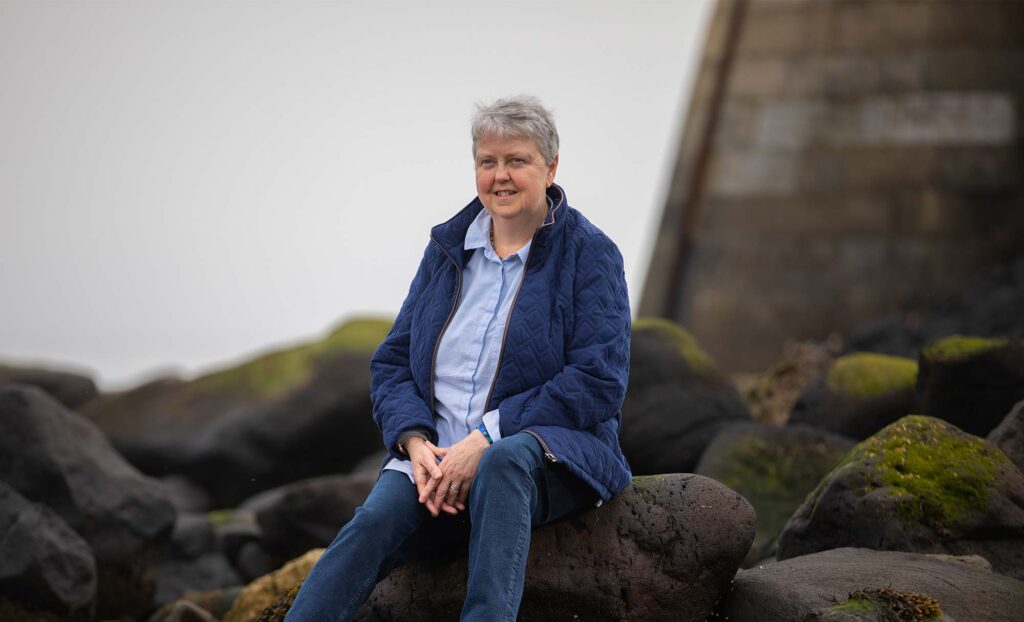Since the age of eight Pat knew she was different. She remembers seeing a story about Billie Jean King and having to look up the word bisexual in the dictionary. Coming from a relatively strict protestant family and living in a small community, the church had a prominent influence. This made it difficult to express who she really was.
On joining the Army, Pat was completely unaware of the ban on gay people in the military. When she first visited Germany and met others who were also gay, it was evident they had to remain hidden.

“Feelings of being watched constantly, the threat of being reported and investigated by SIB with potential discharge. Hiding who you were… not being able to express yourself… constantly hiding.”
It was after the News of the World published an article on homosexuality in the military that she became more aware of investigations taking place. Pat’s friend was interrogated, prompting her to destroy any letters and correspondence with family and friends. She was scared. At this time, Pat was aware she could potentially be prosecuted. It was well known that on discharge, men would likely get prison time and women were discharged as ‘service no longer required’. These labels meant that future employment was bound to be difficult and questions would be asked.

“Personal correspondence was destroyed, letters from parents, siblings and friends in case the SIB interviewed you. They would go through everything, every line; it was just a feeling of intense vulnerability and exposure that everyone felt.”
“The atmosphere that was instilled ripped through the unit. Gay, bi and straight all
felt the intensity of the scrutiny. I feel like it was a blessing when the ban was lifted.”
Not only did this mean that Pat was always looking over her shoulder for the next potential investigation, it also severely impacted her ability to develop her career due to constant suspicion. She was passed over for promotional opportunities and in her last unit, had files on her to be watched closely. Even those who were straight but befriended or supported those under suspicion could have been targeted just for the association.

“The atmosphere that was instilled ripped through the unit. Gay, bi and straight all felt the intensity of the scrutiny.”
The constant threat of exposure was eventually too much and after five years of service, Pat decided to leave the armed forces. She returned to her home in County Larne and trained as a social worker.
“I’m proud of my service, proud of what I did and a great honour to have done what I did but I’d gone as far as I could’ve gone.”
Now retired, Pat dips in and out of work. She keeps in contact with some of those she met in the Army and has linked up with some ex-military thanks to social media. She joined the British Legion in her local area and spends time with her two cats and partner, watching and enjoying as much football as possible.
“I feel like the military by nature is sexist, racist and homophobic. There are good people there, but as an institution it still has its faults and failings. I feel like it was a blessing when the ban was lifted.”

